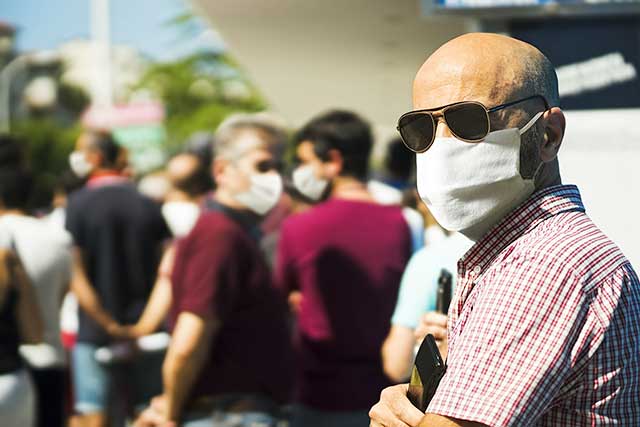Updated CDC testing guidelines lead to another recommendation for reduced COVID-19 testing, but there are three exceptions.
The US Centers for Disease Control and Prevention (CDC) released new guidelines Aug. 24, 2020, that update testing recommendations for COVID-19 across the US. Businesses and local governments often rely heavily on CDC recommendations, and changes to these recommendations can have major implications for the SARS-CoV-2 test volumes that clinical laboratories can expect to see.
The largest and most meaningful change in the CDC’s updated guidelines for clinical laboratories is the recommendation for those who have been exposed to an individual known to have COVID-19. Those who have a known COVID-19 exposure, according to the Aug. 24 update, do not require any SARS-CoV-2 diagnostic testing, says the CDC now. There are some exceptions to this, including for those who later become symptomatic, those who are considered to be a “vulnerable individual,” and in situations where state or local public health officials recommend that exposed individuals take a test.
This recommendation also extends to those who are in high transmission areas around large groups. “If you are in a high COVID-19 transmission area and have attended a public or private gathering of more than 10 people (without widespread mask wearing or physical distancing),” CDC guidance states, “you do not necessarily need a test unless you are a vulnerable individual or your health care provider or State or local public health officials recommend you take one.”
Reaction to CDC’s Evolving COVID-19 Testing Guidelines

Research scientist Angela Rasmussen, PhD (above), of Columbia Public Health in New York City, urged more testing, not less, after the CDC updated COVID-19 testing recommendations. (Photo source: Columbia Public Health)
The Aug. 24 CDC test guidance has received mixed feedback from experts.
“It seems as though this new guidance is actively discouraging people from seeking testing, even if they have a known exposure,” Angela Rasmussen, PhD, a research scientist at Columbia Public Health in New York City, told NBC News. “We need more testing, not less. Testing, even for asymptomatic people, is critical to keeping community transmission low since we know that presymptomatic transmission drives much of the spread of SARS-CoV-2.”

Step in the right direction, says Amesh Adalja, MD, of Johns Hopkins University Center for Health Security. (Photo Source: Center for Health Security)
While some experts view this change as negative, others see it as a step in the right direction. “I agree that reflex testing of anybody with a significant exposure is unnecessary and not the best policy,” Amesh Adalja, MD, Assistant Professor with the Johns Hopkins Center for Health Security, said in a recent interview. “Those individuals with significant exposures should self-quarantine for 14 days.”
Role of Antibody Testing with Latest CDC COVID-19 Guidelines
CDC guidelines continue to recommend against using antibody testing to diagnose the presence of an infection. Guidelines do, however, state, “In certain situations, antibody tests may be used in conjunction with viral detection tests to support clinical assessment of persons who present late in their illnesses.” Antibody tests are also indicated in determining prior infection when an individual may have a post-infectious syndrome caused by COVID-19.
The CDC’s recently updated recommendation that COVID-19 positive individuals should not receive repeat testing is maintained in the Aug. 24 updated guidelines (See CDC Revises Guidelines for COVID-19 Positive Patients, Eliminating the Need for Repeat Testing).
The CDC also continues to recommend that asymptomatic individuals who do not have a reason to suspect a COVID-19 infection should not receive SARS-CoV-2 diagnostic testing. Exceptions to this guidance includes healthcare workers, nursing home workers, and nursing home residents who may be tested according to the protocols of individual facilities. The CDC also makes allowances for state and local public health officials to advise specific people, or groups of people, to be tested.
Implications for Clinical Laboratory Testing for Coronavirus
Clinical laboratory professionals should be aware of the latest CDC guidance when providing advice on testing, knowing that there lacks a cohesive COVID-19 testing strategy consensus from the experts. Moreover, it is important to remember that local regions can institute testing guidelines that are more strict than these CDC recommendations.
Ultimately, the CDC, states, and local regions all have the power to influence SARS-CoV-2 coronavirus testing volumes. This affects clinical laboratories in significant ways. With CDC guidelines recommending less and less testing with each update, test volumes and the revenue they generate may soon begin to decline.

—By Caleb Williams, Editor, COVID-19 STAT
Related Resources:
NBC News: CDC reverses COVID-19 guidance, says testing may not be needed after exposure






